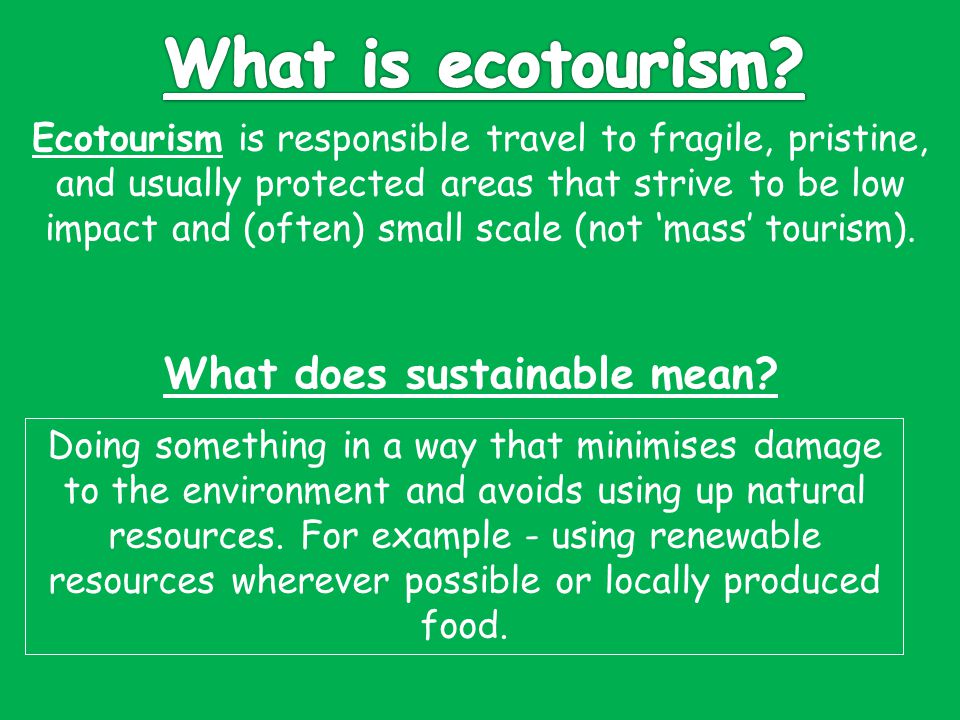Eco Tourism is a kind of tourism that is aimed at sustaining natural tourist sites for future generations. It includes biodiversity conservation, social sustainability, and environmental awareness. This form of travel is also referred to as “green” or “sustainable” tourism.
Traveling to remote destinations is becoming more and more popular. However, when a vacation destination becomes overcrowded, the effects can be catastrophic. A pristine nature is in danger of yielding to the needs of expanding populations. Many travelers make the mistake of visiting such places without taking into account the ecological, social, and cultural consequences.

To prevent such harm, it is important to understand what eco tourism is and how it affects local people and ecosystems. If properly managed, ecotourism can help protect the environment and increase the economic stability of developing countries. Those living near protected areas should also benefit from the revenue. The most successful ecotourism programs support the needs of the people, while providing financial benefits and a positive impact on the environment.
Among the many benefits of ecotourism are conservation of natural resources, improved life quality of the inhabitants, and the opportunity to experience the wonders of the natural world. But, tourism can also cause a number of problems, such as overcrowding and environmental pollution.
Ecotourism is good for the environment, but it can have a negative impact when poorly managed. For example, burning fossil fuels pollutes sensitive environmental areas. Tourists often remove plants, which decreases the bio-diversity of the site. In addition, overcrowding is a problem at famous locations.
Another problem is poaching. Since the advent of the ivory trade, a dramatic increase in poaching has occurred. While some ecotourism initiatives have created more problems than they solve, there are also some that have helped to reduce the exploitation of wildlife. Other activities, such as wildlife viewing, acclimate wild animals to humans.
Unlike other forms of tourism, ecotourism is not geared towards promoting specific businesses or goods. In fact, most ecotourism programs are foreign-owned, and they don’t use local labor. As a result, a large portion of their revenues are lost in the local economy.
In addition to providing financial benefits to the local community, ecotourism can help hold industrialization and urbanization at bay. By encouraging visitors to stay at home, fewer carbon emissions are generated, and the money spent on the trip is better spent on preserving the area’s resources. Some studies indicate that revenue from ecotourism can add up to $1.3 million over a person’s lifetime.
In a global context, the economic benefits of ecotourism outweigh any potential negative impacts. During an ecotourism trip, travellers learn about the culture of the area, the traditions, and the way of life of the people living there. They also gain an understanding of other cultures and ways of life.
However, it is important to remember that ecotourism is not an overnight solution to poverty and other issues. While it can provide a much-needed source of income for the less privileged, it can create economic dependency, and may even lead to conflicts over land or other natural resources.
